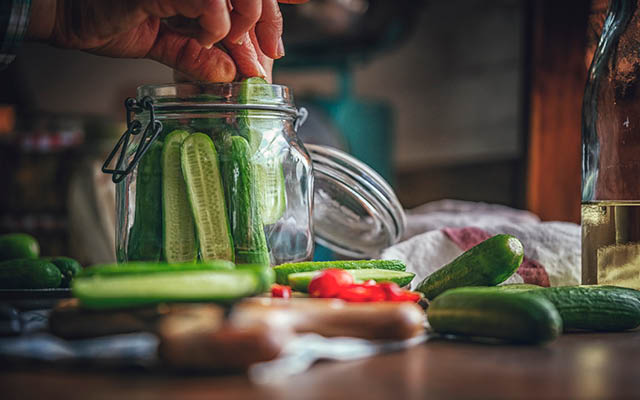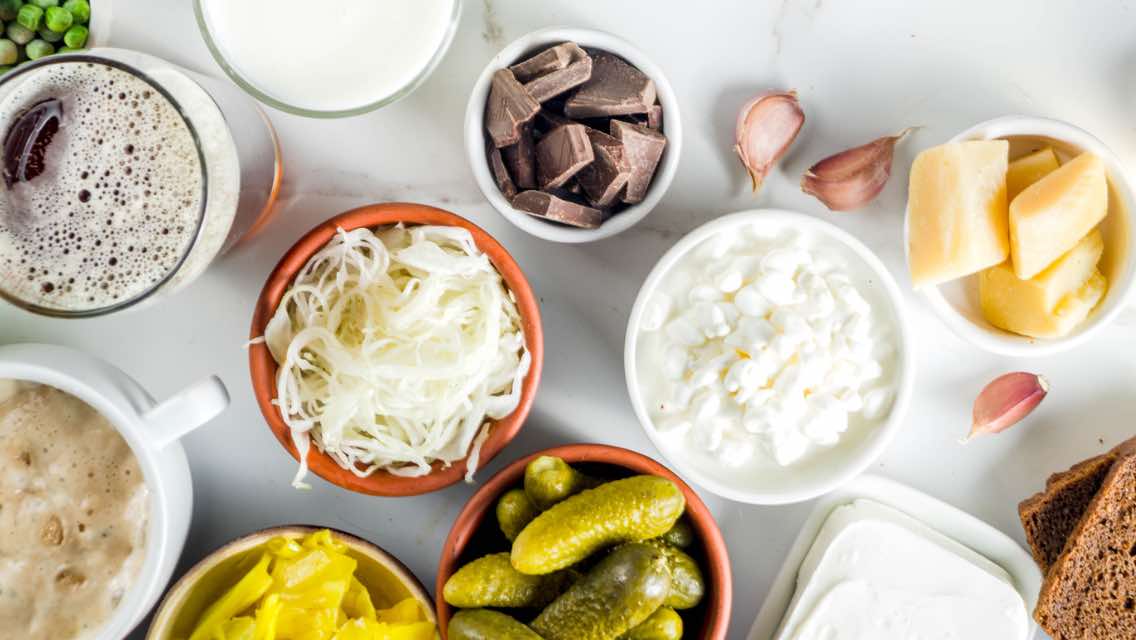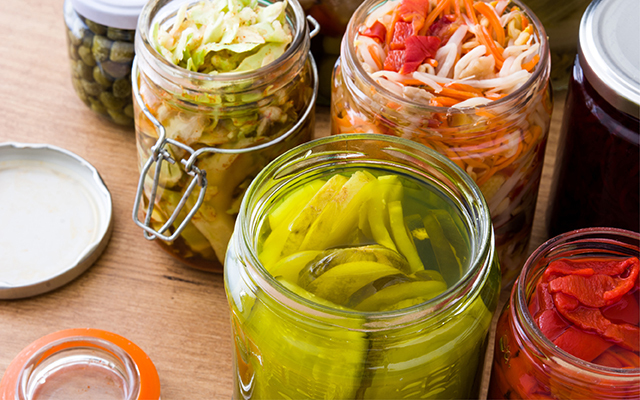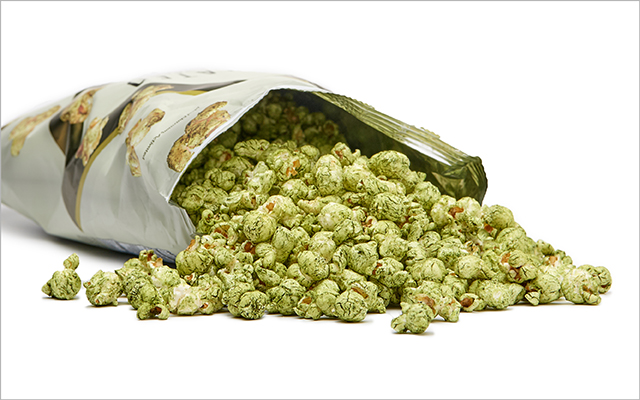To be sure, diet is a vital piece of the gut-health puzzle. “Food is a fantastic place to start,” says Ruscio. “I encourage everyone to add kimchi, sauerkraut, kefir, and kombucha to their diet. But it might be easier to get over the initial hump of rebalancing the gut’s microbiome with a well-balanced probiotic protocol.”
Our forebears didn’t use supplements, of course, but research shows each generation hosts less gut-microbial diversity than the last, notes Martin Blaser, MD, in his book Missing Microbes. He blames the prevalence of antibiotics in our medical care and animal feed, as well as increasing rates of C-section births.
These factors mean that our microbiomes need all the help they can get, Rountree says. “Even if you’re not having digestive issues, an imbalanced microbiome could be showing up as other problems like allergies or recurring infections.”
He adds that microbiome diversity tends to plummet as we age (though no one really understands why), making it even more important for people over 40 to fortify their microbiomes.
Plain yogurt and sauerkraut provide good support. But many other products making probiotic claims, such as kombucha, can contain high levels of sugar. This feeds bad bacteria the probiotics might otherwise combat, Rountree notes. Even if you stick with less-sweetened kombucha, its probiotic effect is minimal.
“Kombucha is mildly beneficial,” he observes, “but you’d have to drink gallons of it to get the quantities of probiotics you can get in a capsule.” (For more on selecting kombucha, see “Is Your Kombucha the Real Thing?”.)




This Post Has 0 Comments